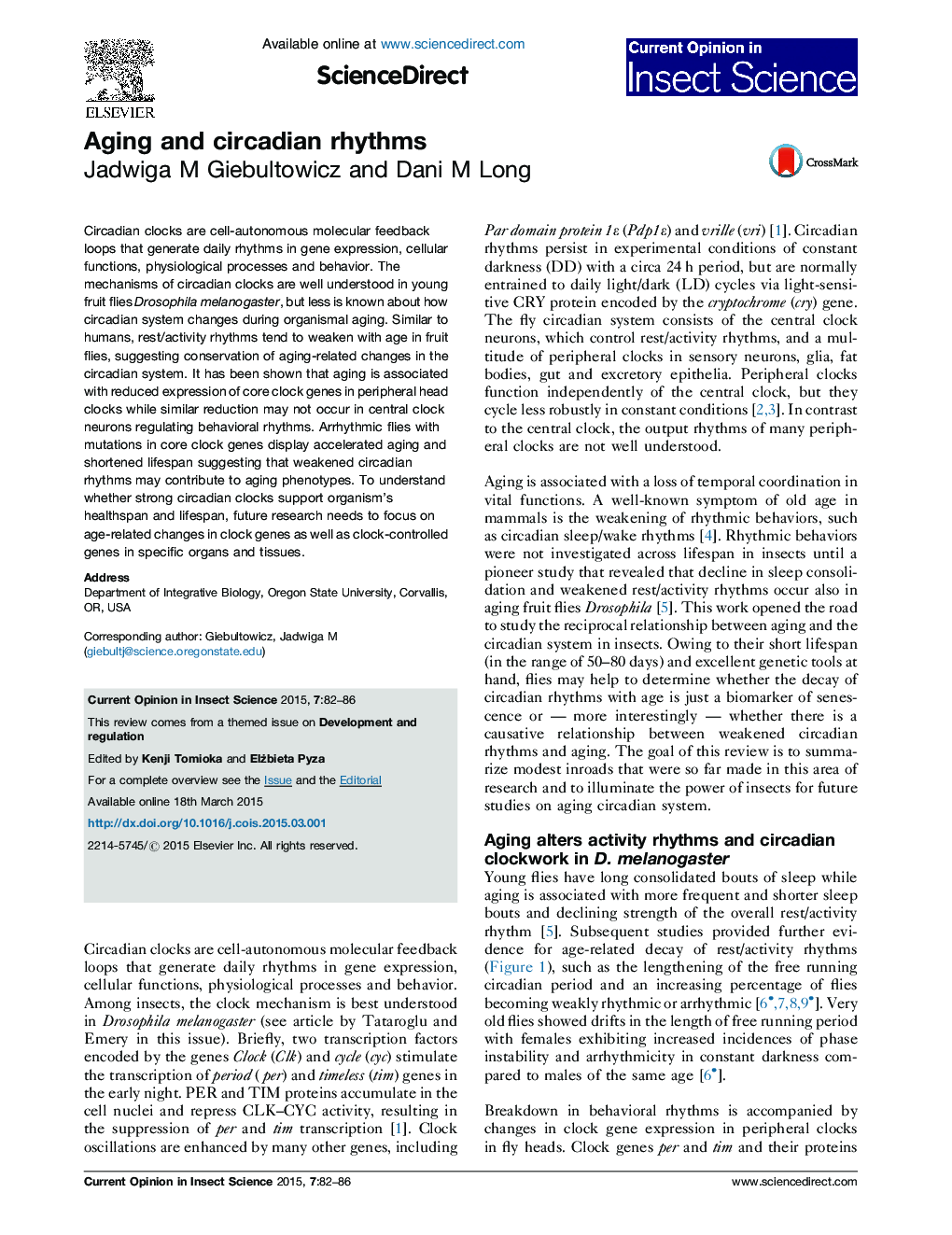| کد مقاله | کد نشریه | سال انتشار | مقاله انگلیسی | نسخه تمام متن |
|---|---|---|---|---|
| 4508308 | 1624383 | 2015 | 5 صفحه PDF | دانلود رایگان |
• Circadian clocks are well understood in young fruit flies but less is known about how they change during aging.
• Sleep/activity rhythms decay in aging while clock gene oscillations persist in central clock.
• Clock mutants with disrupted rhythms show accelerated aging phenotypes.
Circadian clocks are cell-autonomous molecular feedback loops that generate daily rhythms in gene expression, cellular functions, physiological processes and behavior. The mechanisms of circadian clocks are well understood in young fruit flies Drosophila melanogaster, but less is known about how circadian system changes during organismal aging. Similar to humans, rest/activity rhythms tend to weaken with age in fruit flies, suggesting conservation of aging-related changes in the circadian system. It has been shown that aging is associated with reduced expression of core clock genes in peripheral head clocks while similar reduction may not occur in central clock neurons regulating behavioral rhythms. Arrhythmic flies with mutations in core clock genes display accelerated aging and shortened lifespan suggesting that weakened circadian rhythms may contribute to aging phenotypes. To understand whether strong circadian clocks support organism's healthspan and lifespan, future research needs to focus on age-related changes in clock genes as well as clock-controlled genes in specific organs and tissues.
Journal: Current Opinion in Insect Science - Volume 7, February 2015, Pages 82–86
